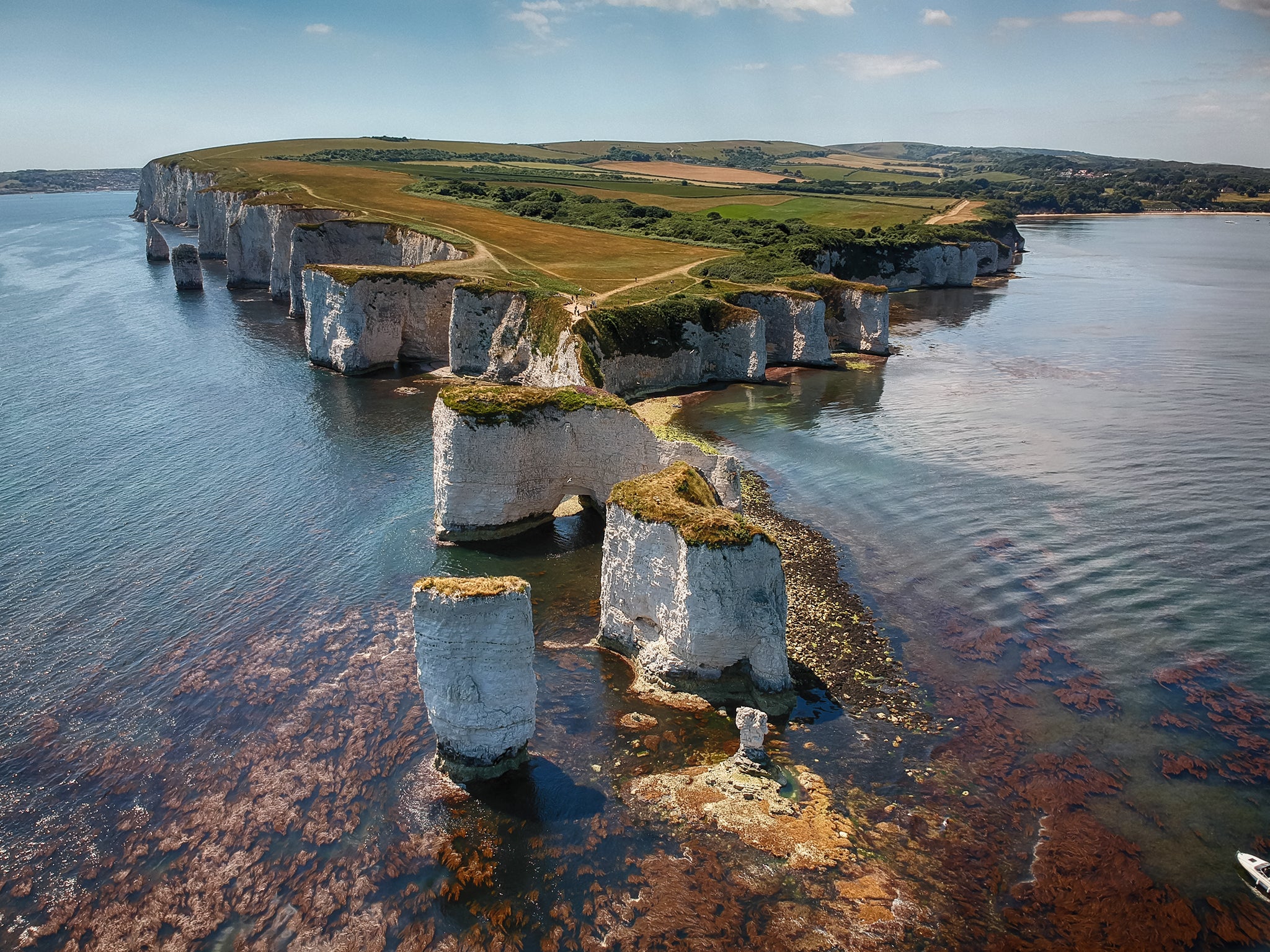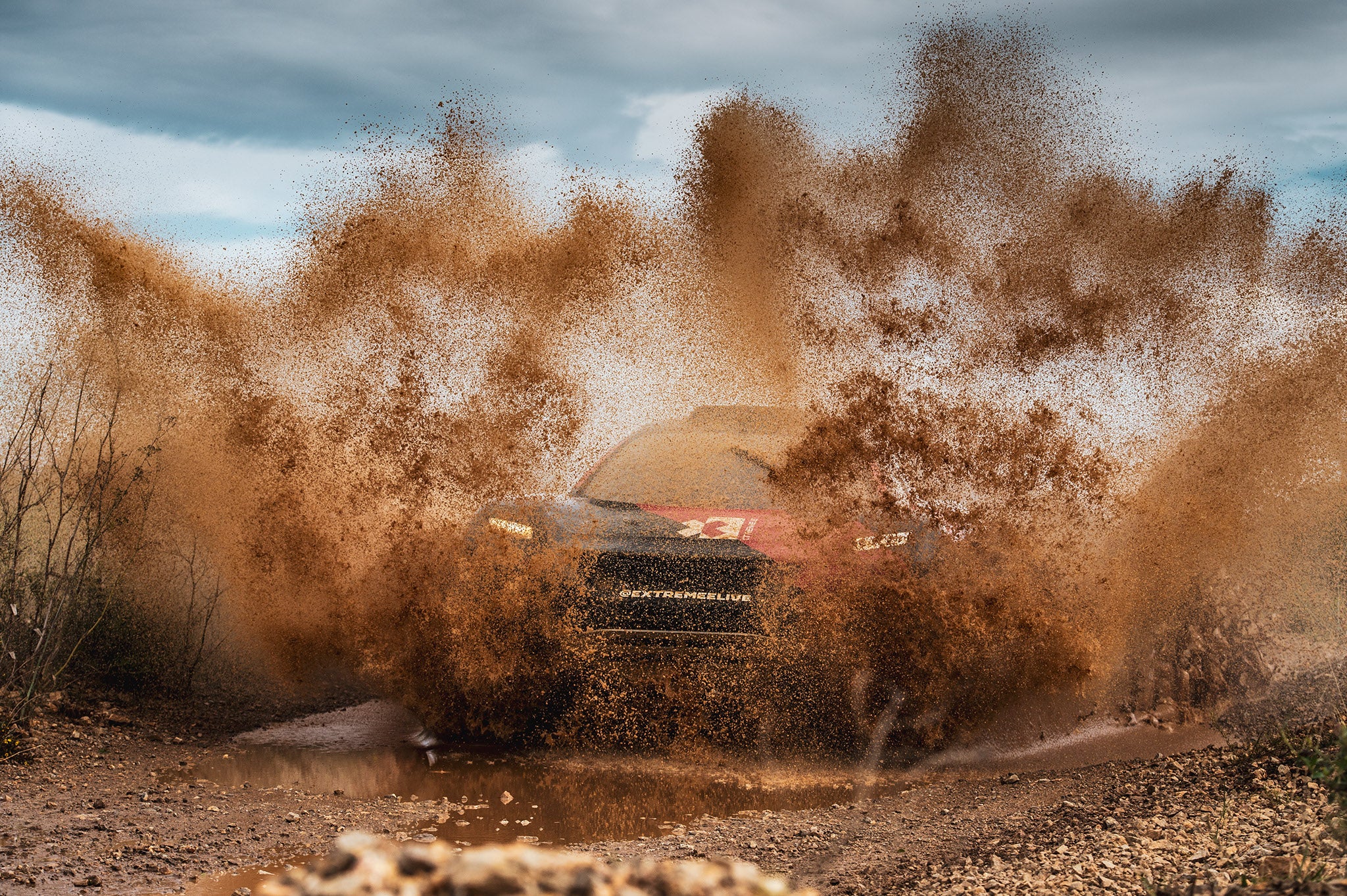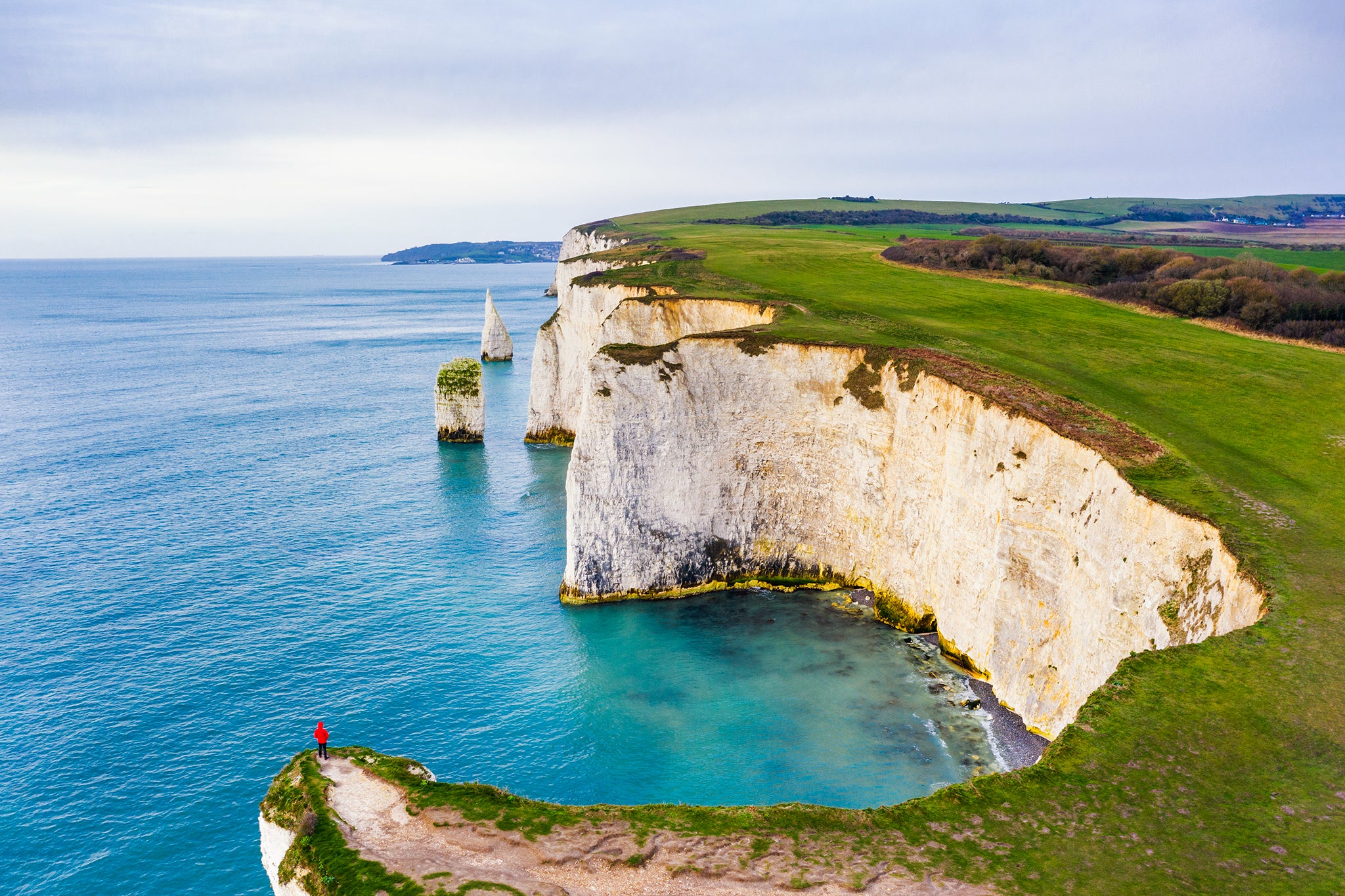
#ExtremeE
Driving on extreme terrain: Dorset
What to expect from the season finale in Dorset

As the first Extreme E season approaches its final challenge, it’s safe to say that the participating racing teams have just about seen and done it all. Having endured everything from the sandy rocks and sweltering heat of Saudi Arabia to the freezing temperatures on Arctic ice in Greenland, a terrain on the south coast of England might seem like light work for the ODYSSEY 21 electric SUVs, which have proven their durability and flexibility at every turn of the season so far.
While driving on sand and clay is not the most daunting prospect, the drivers will have one more adversary to contend with in England: water. Be it from cloudbursts or muddy surfaces, there are no two ways around facing wet conditions over a full weekend on the Jurassic Coast in December.
The challenges of driving an off-road race on the coast of England
As was the case in the previous races, Continental tires will play their part in helping the teams rise to this challenge. The CrossContact Extreme E has been specifically designed to withstand a range of ruthless conditions throughout the competition, but in a way, the greatest challenge has been saved until last.
The enhanced grip and traction features of the tire will be pushed to their limits on the slippery, unpredictable surfaces of England’s coastline. As with each race of the season, Extreme E organizers didn’t just select this location for its scenic beauty or driving challenges: they also chose it to highlight a specific local cause related to global climate change and sustainability challenges.

Extreme E and The National Trust: the Jurassic X Prix legacy project
The Jurassic Coast stretches for almost 100 miles along the southern coastline of Great Britain. As England’s only natural World Heritage Site and home to some of the most biodiverse places in the UK, the region is of major significance to domestic nature preservation efforts. Combating the local and national decline of biodiversity will be at the heart of the Extreme E legacy projects as the off-road racing series enters its fifth and final phase. Biodiversity, our planet’s variety of plant and animal life, is critical for well-functioning ecosystems and human existence.
million species are threatened worldwide
1
decrease in population sizes since 1970
68%
(only) of the UKs biodiversity remains (2020)
50%
The Jurassic X Prix casts the spotlight on a new “super” National Nature Reserve on the Jurassic Coast: the Purbeck Heaths. Since 2020, National Trust projects have worked to generate greater levels of biodiversity across these 3,300 ha of land. The removal of fences and the reintroduction of grazing cattle are just two examples of how the landscape is being adapted to support and revive wildlife.
In addition to promoting the value of biodiversity, Extreme E will be working closely with the British Ministry of Defence, whose sustainability strategy corresponds strongly with the Extreme E ethos of raising awareness for climate change issues. The races themselves will in fact be held in Bovington, a well-known military base some eight miles off the coastline, where efforts to reduce environmental impact are already being made in the form of carbon-efficient accommodation and the scaling up of electric armored vehicles.
The grand finale of Extreme E 2021
The Jurassic X Prix will be a notable finale in more than one way. The race wraps up a spectacular inaugural season of Extreme E, a brand-new race series that beat all the odds to stage a race around the globe like no other the world has ever seen. With the related legacy project, it provides another impressive opportunity to show that motorsports and sustainability can go hand in hand.
Finally, it’s another chance for the CrossContact Extreme E to prove itself and help contestants safely reach the final finish line in Dorset, where one team will be crowned the first ever Extreme E champions.

